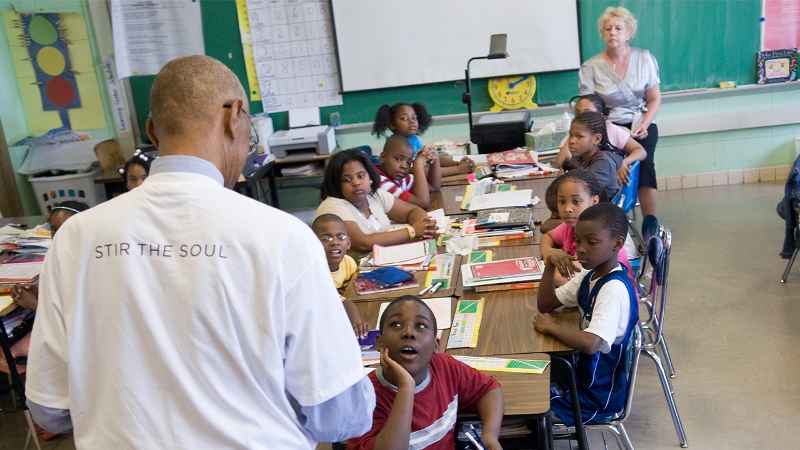Enroll in Primary Science Tuition Singapore for a Strong Science Foundation
Enroll in Primary Science Tuition Singapore for a Strong Science Foundation
Blog Article
Discover the Necessary Advantages of Recognizing Key Scientific Research for Young Learners
The relevance of main science education and learning for young students prolongs much past plain expertise purchase; it offers as an essential pillar in creating vital skills such as important thinking, analytic, and imagination. Engaging with clinical ideas through interactive and inquiry-based activities not just grows curiosity but likewise lays the groundwork for resilient, confident students. As we discover these advantages additionally, it becomes clear that the ramifications for future scholastic and individual growth are profound. Nevertheless, what specific methods can educators employ to take full advantage of these advantages?
Enhancing Critical Assuming Skills
Fostering important assuming abilities in young students is essential for their cognitive development and future scholastic success. Important reasoning allows youngsters to examine info, review evidence, and make informed decisions, which are vital skills in today's information-rich society. By participating in clinical inquiry, young learners can boost these abilities as they check out principles via monitoring, thinking, and trial and error.
In primary science education and learning, educators can facilitate critical thinking by encouraging students to ask inquiries, develop theories, and perform experiments. This hands-on approach enables children to practice problem-solving and develop rational thinking skills. For instance, when students examine the residential or commercial properties of materials or the concepts of motion, they discover to evaluate their searchings for critically and reason based on proof.
Furthermore, discussions and joint projects can promote vital thinking by providing chances for students to verbalize their thoughts, obstacle presumptions, and consider varied viewpoints. By producing a supportive setting that values questions and representation, educators can support vital assuming abilities that encourage young learners to become lifelong learners and independent thinkers. Eventually, improving these abilities lays a durable structure for their future scholastic ventures and personal growth.
Promoting Interest and Exploration

Key science education supplies a structured atmosphere where young students can discover different sensations via hands-on experiments and monitorings. By permitting them to communicate with products and participate in inquiry-based knowing, teachers create chances for youngsters to develop theories, examine their ideas, and reason. Such experiences support a sense of wonder and exhilaration about scientific research.

Structure Self-confidence in Trouble Resolving
Building self-confidence in analytic is an essential element of key science education that equips young learners to approach obstacles with durability and creativity - primary science tuition Singapore. They develop important skills in essential reasoning and evaluation when children are encouraged to engage with scientific concepts through hands-on activities and inquiry-based understanding. This process not only improves their understanding of scientific concepts however also fosters have a peek at this website a feeling of possession over their knowing
To develop confidence, educators should develop a supportive environment where errors are considered as opportunities for growth instead than failures. This motivates trainees to take threats and discover numerous services to troubles. By supplying scaffolding and assistance, educators can assist pupils navigate complicated jobs, gradually enhancing their freedom in problem-solving situations.
Furthermore, joint discovering experiences, such as group tasks or experiments, can further enhance students' confidence as they learn to express their ideas and listen to others' viewpoints. These interactions nurture social abilities and reinforce the idea that analytical is commonly a collective venture. Ultimately, cultivating self-confidence in analytic prepares young students for future academic obstacles and equips them with the tools needed for lifelong discovering.
Encouraging Imagination and Development
In the world of main scientific research education, encouraging creative thinking and development is crucial for growing a vibrant learning atmosphere. By fostering a society where young learners can discover concepts and experiment freely, teachers assist students develop vital believing skills and an interest for exploration. Creativity in scientific research motivates children to ask concerns, develop theories, and take part in hands-on activities that stimulate their creative imagination.
Incorporating flexible projects and inquiry-based learning into the educational program permits students to share their special point of views and options. When charged with fixing a problem associated to their setting, students can conceptualize numerous approaches, leading to inventive results that display their creativity. This not only grows their understanding of scientific concepts yet likewise instills a sense of possession over their learning process.
In addition, innovative scientific research education nurtures collaboration among peers, as trainees typically share ideas and improve one an additional's insights - primary science tuition Singapore. This joint spirit advertises not only technology however likewise vital social abilities. Thus, by prioritizing creative thinking and development in primary science education, we equip young learners to believe seriously, welcome challenges, and imagine possibilities, laying a solid foundation for lifelong knowing and expedition
Getting Ready For Future Understanding Challenges
Young students' capacity to browse future learning difficulties rests on a strong foundation in key scientific research education. This foundational understanding equips trainees with vital believing skills and a systematic approach to analytical, necessary for tackling complicated issues in an ever-evolving globe. Primary scientific research promotes inquiry-based discovering, motivating pupils to ask concerns, discover hypotheses, and participate in hands-on experiments.
As they create these skills, students become experienced at analyzing information, identifying patterns, and attracting informed conclusions. Such expertises are important not read here only in clinical areas yet also in technology, mathematics, and engineering (STEM), where interdisciplinary knowledge is progressively crucial.
Moreover, primary scientific research education and learning cultivates a feeling of interest and strength in young students, enabling them to watch obstacles as opportunities for development. As they experience and overcome challenges in their clinical explorations, they develop self-confidence in their capacity to adjust and introduce.
Eventually, a strong structure in key science not only prepares young learners for academic quests yet also furnishes them with the tools essential for long-lasting learning and flexibility in a quickly transforming global landscape. By investing in primary science education, we are spending in the future potential of our try here learners.
Final Thought
Understanding primary scientific research is crucial for young students, as it cultivates critical reasoning, interest, and imagination. Involving with clinical concepts through hands-on experiments constructs and boosts analytic abilities durability. This fundamental understanding not only furnishes trainees to assess data and identify patterns however also supports an inquiry-based attitude. Inevitably, the advantages of key scientific research education prepare youngsters for future academic quests and impart lifelong understanding habits important for prospering in an ever-evolving globe.
The value of key scientific research education and learning for young students extends much beyond simple understanding purchase; it serves as a basic column in creating important skills such as vital reasoning, analytical, and imagination. By developing a helpful atmosphere that values questions and reflection, instructors can support critical thinking skills that equip young learners to end up being independent thinkers and lifelong learners. Therefore, by prioritizing imagination and development in key science education and learning, we equip young students to believe seriously, accept challenges, and envision opportunities, laying a strong structure for long-lasting understanding and expedition.
Young learners' ability to navigate future knowing obstacles pivots on a solid foundation in main science education and learning.Recognizing primary science is crucial for young students, as it promotes essential thinking, interest, and creative thinking.
Report this page